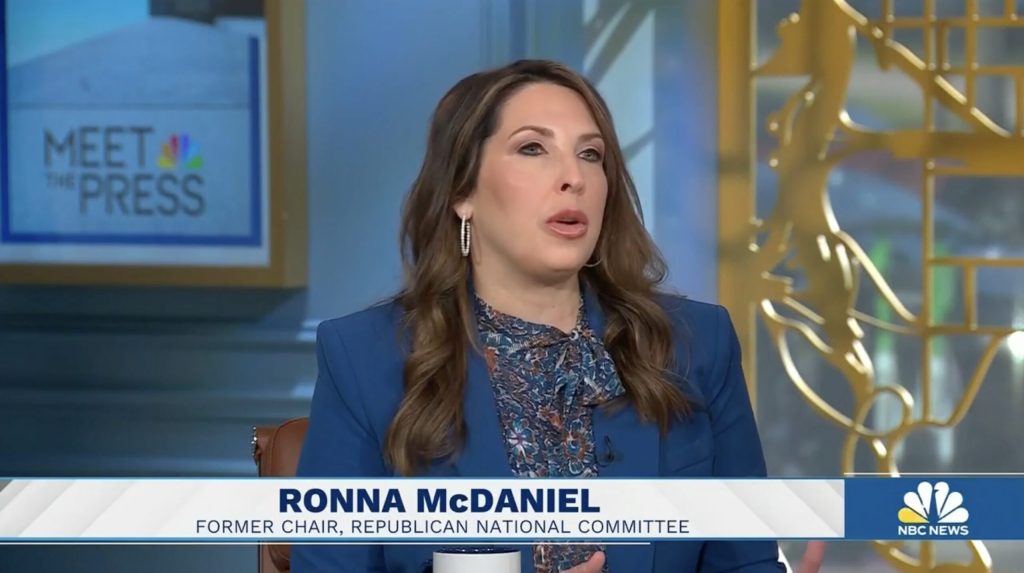The recent decision by NBC News to retract its offer of an on-air contributor role to former Republican National Committee chair Ronna McDaniel has sparked a wave of discussion and reflection within the media landscape. This abrupt reversal comes in the wake of internal backlash and public criticism over McDaniel’s perceived alignment with former President Trump’s false claims of election fraud. As the dust settles on this controversy, it offers a valuable opportunity to examine the intersection of media, politics, and accountability in today’s polarized climate.
The Backlash:
NBC News Group Chairman Cesar Conde’s announcement to rescind McDaniel’s contributor role followed a barrage of internal criticism from the division’s on-air talent, particularly on MSNBC. Prominent hosts, including Rachel Maddow, voiced vehement opposition to McDaniel’s hiring, citing concerns about her defense of Trump’s baseless allegations of election fraud. The swift and vocal reaction from within NBC underscores the power of internal dissent and the importance of upholding journalistic integrity in the face of controversy.
Media Ethics in Question:
The debacle surrounding McDaniel’s proposed role at NBC raises fundamental questions about media ethics and accountability. Critics argue that McDaniel’s association with Trump’s discredited claims undermines her credibility as a neutral commentator on political affairs. The decision to offer her a platform sparked outrage among journalists and viewers alike, highlighting the delicate balance between journalistic impartiality and political partisanship in today’s media landscape.
Navigating Partisan Divides:
In an era marked by heightened political polarization, media outlets face increasing pressure to navigate partisan divides with integrity and impartiality. The uproar over McDaniel’s hiring underscores the challenges of maintaining journalistic standards in an environment fraught with ideological tensions. As news organizations strive to uphold their credibility and independence, they must navigate the delicate balance between providing diverse perspectives and avoiding the promotion of misinformation or propaganda.
The Role of Media Leadership:
The swift reversal of NBC’s decision to hire McDaniel sheds light on the role of media leadership in responding to internal dissent and public outcry. While the initial decision to offer McDaniel a contributor role may have been motivated by a desire for ideological diversity, the overwhelming backlash from within the organization prompted a reconsideration of that choice. This episode underscores the importance of listening to diverse voices within newsrooms and holding media executives accountable for their decisions.
Lessons Learned:
As NBC News grapples with the fallout from the McDaniel controversy, there are valuable lessons to be learned for both journalists and media organizations. The incident serves as a reminder of the importance of upholding journalistic principles of accuracy, fairness, and impartiality, even in the face of political pressure. Moving forward, news outlets must remain vigilant in vetting contributors and maintaining transparency about their affiliations and biases to safeguard the integrity of their reporting.
The episode involving Ronna McDaniel’s brief tenure as a prospective NBC News contributor offers a sobering reminder of the challenges and responsibilities inherent in modern journalism. While the decision to retract her offer reflects a commitment to journalistic integrity, it also underscores the need for news organizations to navigate political complexities with care and diligence. As the media landscape continues to evolve, it is essential for journalists and media leaders alike to uphold the highest standards of ethics, accountability, and impartiality in serving the public interest.
